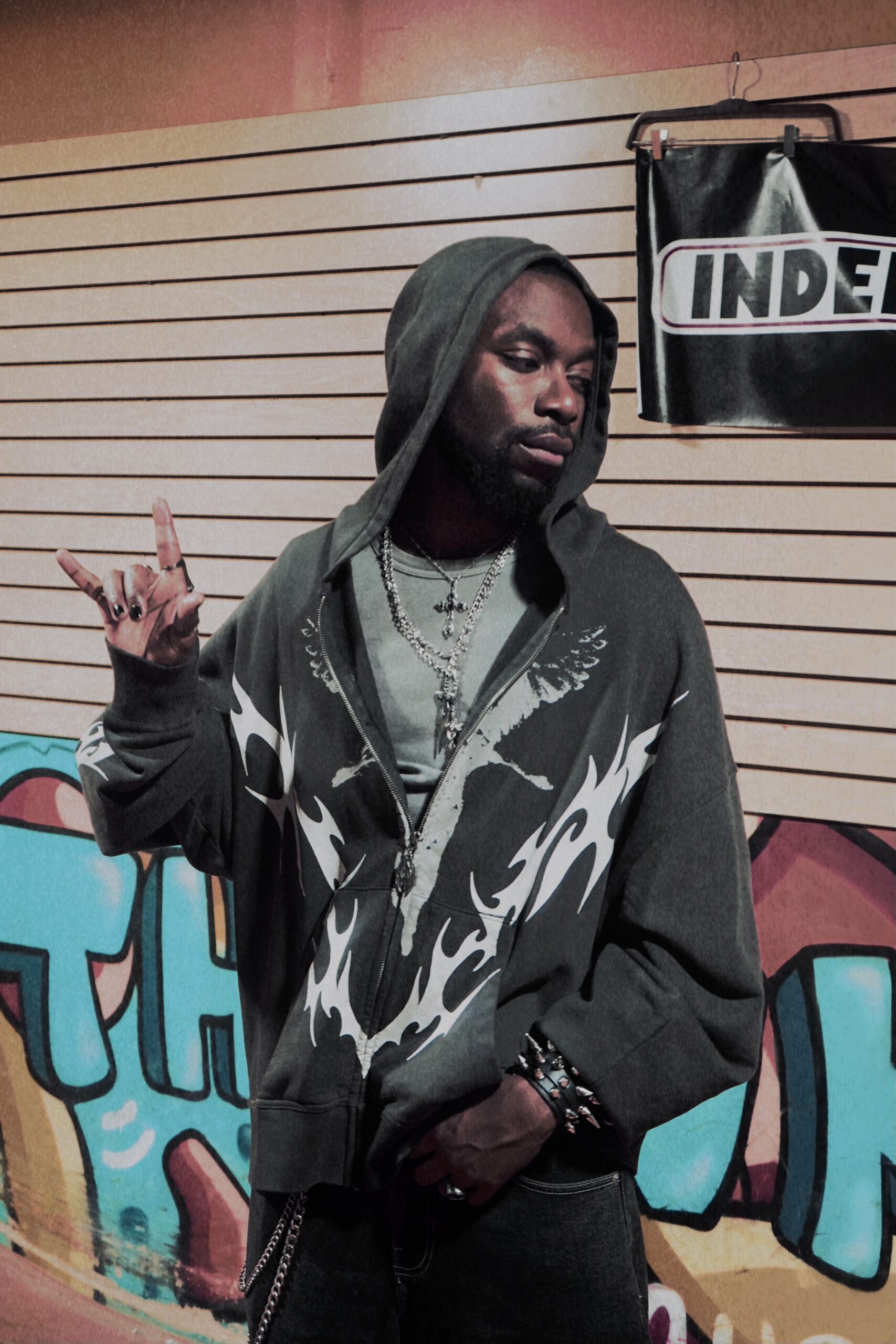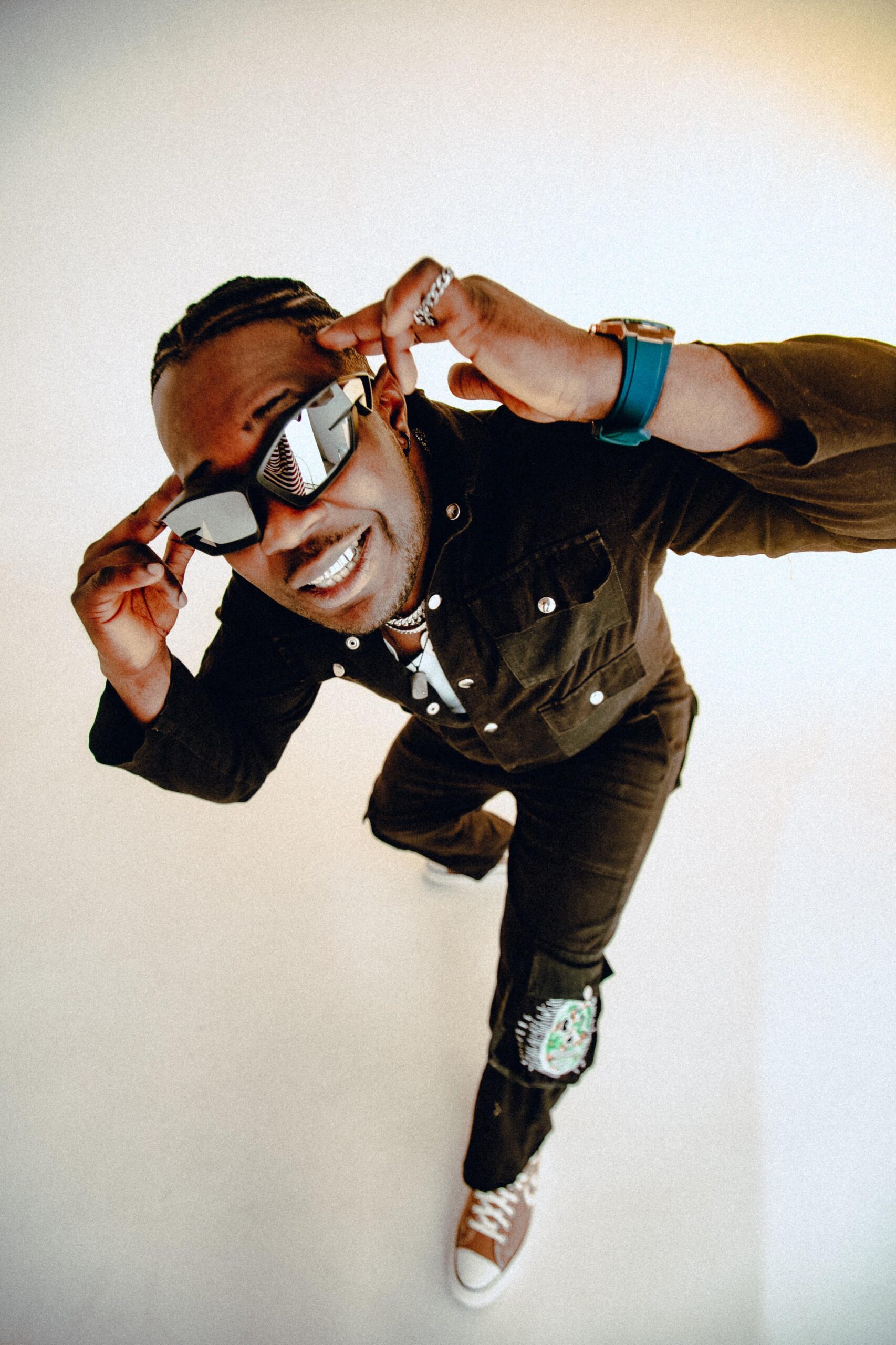Bomi Anifowose
Africa’s music story has always been one of reinvention, of raw voices turning into cultural forces, of local rhythms finding global resonance. At Upper Entertainment, we see it as our mission to trace these beginnings, to capture the moment when tomorrow’s icons are still sharpening their craft in the shadows. That’s the heartbeat of Upper Quintet.
Now in its ninth volume, the series continues to champion undiscovered brilliance with a focus on two vibrant music hubs: South Africa and Nigeria. Both countries are fertile grounds for innovation, producing sounds that defy categorization and artists whose ambition outpaces the stage they stand on. From experimental textures to boundary-pushing performances, this edition is a front-row seat to that restless energy.
But more than a spotlight, Upper Quintet Vol. 9 is a wager. It’s a bet on the names not yet on billboards but already commanding attention in underground circles. It’s an invitation to witness promise before it hardens into legacy, and to see Africa’s future through the boldest voices of its present.
Sxlem:
Sxlem is less a name than a provocation. The Nigerian rapper has carved his alias into something jagged, almost unpronounceable on first sight, a deliberate distortion that mirrors his art. His songs, Otena, Find Me Soon, WDWG, pulse with urgency, their cadences shuttling between defiance and doubt, confession and confrontation. It’s rap that doesn’t seek your approval; it insists on your attention.
His debut EP, Who is Salem?, plays like a labyrinth. The title alone doubles as a riddle, a wink at the instability of identity: Salem, Sxlem, self, alias. In its tracks, he toys with the tension between presence and absence, allowing myth to do as much work as melody. It’s a record less interested in resolution than in the seduction of ambiguity, daring listeners to follow the smoke instead of demanding fire.
Yet his ambition is anything but cryptic. With footprints already on Apple Music, Boomplay, and Shazam, Sxlem is mapping his reach with the cool deliberateness of an artist who knows rap is no longer local currency but global language. What sets him apart is not just his lyricism, but the theatre of mystery that surrounds it, an artist who builds allure out of the unseen, and in doing so, reminds us that in hip-hop, enigma is the sharpest kind of power.
Joey Manson:
Joey Manson is the kind of name that startles the ear, part Johannesburg backstreet, part Marilyn-tinged rebellion. Born Thato Tleane in Rockville, Soweto, he wears the weight of his origins with the insolence of an artist intent on bending the rules. His rap is neither polished pop gloss nor underground murmur; it sits in the fissure between menace and melody, where raw confession collides with theatrics. To listen to Joey is to hear Soweto refracted through distortion, rhythm, and a kind of deliberate chaos.
His catalogue sketches the outline of a restless imagination: verses steeped in darkness, alter egos like “Sketchy Scully” slipping into the bars, and a fixation on both the violence and vulnerability that shape South African youth. There’s an unmistakable grit to his sound, he doesn’t smooth his words for comfort, he sharpens them into serrated edges. Each release feels less like a single than an episode in a larger, unfolding mythology: the story of a kid from Rockville who learned to weaponize his demons and turn them into anthems.
What separates Joey Manson from a crowded hip-hop scene isn’t just his flow or wordplay, but the architecture of persona he’s building. He understands, instinctively, that rap is theatre as much as testimony. His very name, borrowed and twisted from an American cultural provocateur, signals this duality: local roots in Soweto, global ambition in tone. And with every upload, every verse that ripples across SoundCloud and Apple Music, he chisels himself into sharper relief: not a rapper chasing trends, but an artist intent on sculpting myth from the marrow of his own experience.
Gemma Fassie:
Gemma Fassie is carving out her own voice in South Africa’s R&B landscape, balancing the weight of a legendary surname with the urgency of self-definition. A Cape Town native and great-niece of the late Brenda Fassie, Gemma grew up steeped in the sounds of Whitney, Brandy, and Janet, early influences that sharpened her love for storytelling through melody.
Her latest EP, Island 22, distills that inheritance into something tender yet contemporary: a six-track collection where heartbreak morphs into liberation, and 90s R&B textures intertwine with playful Afrobeat flourishes. Songs like No More and September showcase not just her vocal dexterity but also her instinct for crafting intimate soundscapes.
What sets Gemma apart is her refusal to lean solely on legacy. By taking control of her own engineering and production choices, she asserts independence while honoring the lineage her name evokes. The result is music that feels both rooted and unbound a portrait of an artist intent on becoming, not inheriting.
Scumie:
Scumie is part of a new vanguard in South African hip-hop, an artist who wears vulnerability like armor and bends genre without apology. Born Zamazitha Mnqandi in Midrand, she first surfaced as a producer before finding her own voice, carving out a lane where rap cadences meet melodic experiments and confessional grit.
Her projects, from the African Rockstar EP to the 066 volumes, pulse with both menace and melancholy, revealing an artist unafraid to lace trap beats with raw interiority. Tracks often oscillate between bravado and fragility, proof that Scumie isn’t chasing formulas but sketching out her own sonic dialect.
What distinguishes her is not just the music but the mythology she’s building, festival stages, editorial spotlights, and a growing digital presence that position her less as a newcomer than as a necessary disruption. In Scumie, South African hip-hop has found a figure who thrives in tension: both rockstar and diarist, both sharp edge and open wound.
Bhadgurl JGo:
Bhadgurl JGo carries a kind of magnetism that’s impossible to fake. Equal parts sultry and self-assured, she leans into her sex appeal without apology, using it less as decoration and more as a statement of power. On stage and in visuals, she knows how to command attention long before she sings a single note.
When she does sing, though, the room bends. Her voice is supple, capable of sliding into honeyed tones one moment and unleashing raw grit the next. It’s this duality that sets her apart: sensuality laced with real vocal muscle, charm anchored in undeniable craft.
In a market overflowing with voices chasing virality, JGo is crafting her allure like an art form. She isn’t just a singer or a performer, she’s a presence, the kind you don’t just hear but feel. And that, perhaps, is the secret to her rising fire.




